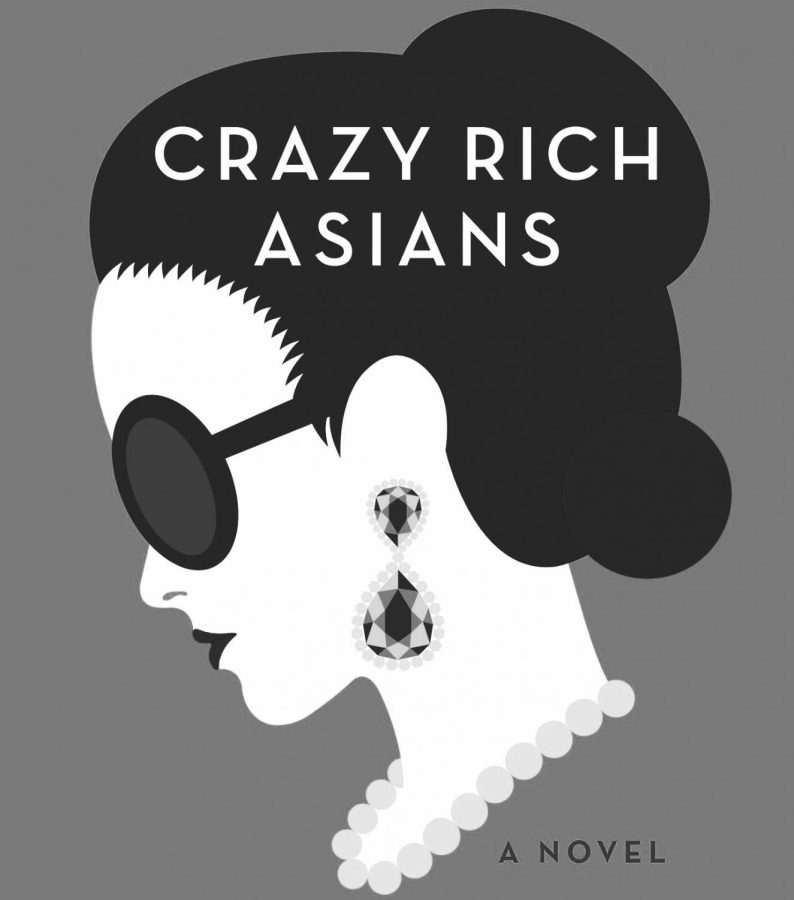Crazy Rich Asians Scores Box Office Gold
October 23, 2018
Crazy Rich Asians, which hit theaters this past August, has surpassed widespread positive critical review for both its moral and entertainment qualities, due to its successful mash of comedy and drama, and for its representation of an underappreciated culture in Hollywood. Much of the history of Hollywood is shadowed by Western culture, and has habitually misrepresented other societies and cultures throughout the world. But, modern film seems to be trying to move away from these tendencies, and a perfect example of one such film would be Crazy Rich Asians. The first film in decades to support an entire Asian-American cast, Crazy Rich Asians presents a fun, escapist picture that is uncompromising in ignoring the Asian stereotypes of past Hollywood film.
Directed by Jon M. Chu and based on a novel of the same name written by Kevin Kwan in 2013, the film centers around Rachel Chu (played by Constance Wu), who goes to Singapore with her boyfriend Nick Young (played by Henry Golding) to meet Nick’s family. Sure enough, conflict ensues as social and economic statuses are revealed in characters, particularly after Rachel finds out that Nick is one of the wealthiest bachelors in Singapore. Rachel soon becomes a target for jealousy of the women in Singapore that are in Nick’s social class, as well as Nick’s own mother, who greatly disapproves of their relationship.
From an entertainment standpoint, the formula that Crazy Rich Asians uses works. It’s blend of comedy and drama isn’t tone def; it’s funny when it needs to be, and it’s intimate when it needs to be as well. The acting is impressive, especially from leads Constance Wu, Henry Golding, and Michelle Yeoh, which leaves an average audience member attached to the characters and cheering them on near the last quarter of the film. It’s no surprise that the film has grossed over 206 million dollars worldwide as well as a 93% approval rating on Rotten Tomatoes. Crazy Rich Asians also has three standing nominations for the People’s Choice Awards as well as heavy speculation around an Oscar nomination.
The fact of whether or not a film is “good” is important but it is nothing compared to the message that a film presents. Crazy Rich Asians is rich in thematic importance in addition to its cultural importance. Visually and thematically, the film mirrors a modernized The Great Gatsby, with it’s two main characters, Rachel and Nick, being romantically restrained due to how society views the separate classes they are apart of. The people that Nick lives around, including his family, look down upon and disprove of Rachel because of her lower class, which causes massive tension revolving around wealth, jealousy, and fellowship upon their upcoming wedding. In addition to this, the function of a family is also a large theme represented in the film. The definition of what the role of a family is and how they should interact is questioned within the confines of the society Nick was birthed in, and Rachel has been thrust into. The love between Nick and Rachel is heavily threatened when all these factors are present.
The most significant gift that Crazy Rich Asians has bestowed is its cultural impact. It explores an Asian environment with Asian culture and supports an all Asian-American cast, with an additional emphasis on Asian culture that combats the Asian stereotypes of past film in America and works to acknowledge true flaws in Asian culture, as every culture has. The values and expectations of Nick’s family and culture are juxtaposed to that of Rachel’s resulting in a mature, unbiased, and well-rounded cultural perspective.
Crazy Rich Asians should be a lesson to filmmakers on how to entertain an audience and inspire future productivity in equality in film. A way of life that has often been heavily stereotyped and insulted in American film has finally been given a gateway to a future where cultures can be equally mocked and glorified instead of discriminated against. Crazy Rich Asians should not only be a model for Asian treatment in film but in treatment of all underrepresented cultures. A new age of entertainment has been revealed at the forefront of the millennial generation, and we should all be excited to see what it holds.







